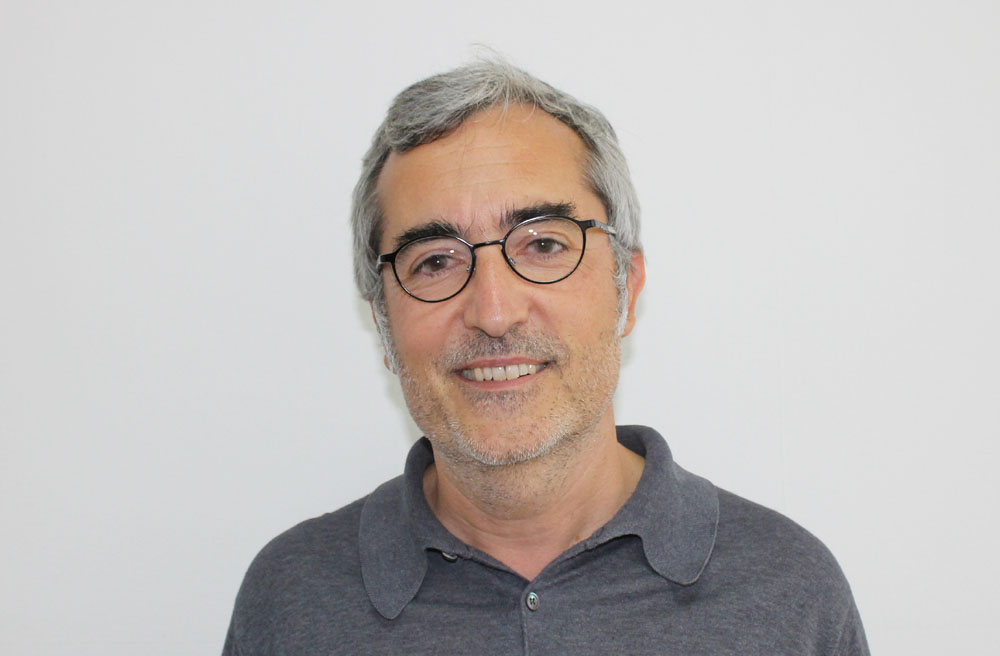
- +351 213 652 600
- +351 213 632 105
- Send Mail
- Download CV
- Orcid
- NOVA Research
Henrique Silveira
GHTM Group: VBD PhD members, Vector-borne diseases
Henrique Silveira holds a PhD in Parasitology by the Imperial College, UK. Currently, he is a Full Professor at IHMT-NOVA (Lisbon, Portugal). From 2015-2019 was IHMT-NOVA deputy director for Science, and Scientific Coordinator of the R&D Centre “Global Health and Tropical Medicine” (UID/Multi/04413), graded as excellent by FCT (Portugal Science Foundation) in the last 2 R&D centers evaluations. Visiting Researcher at the Tropical Medicine Foundation of Amazonas (FMT-HVD), Manaus, Brazil. Coordinates the PhD programs Global Health and Tropical Medicine. Till 2019 represented IHMT in the Network of National Institutes of Public Health of Portuguese Speaking Countries (RINSP/CPLP) and collaborated with the DGS Cooperation Division. In this context, he developed activities such as institutional diagnostics and planning, development of strategic plans, projects, and training. He was involved in the development and implementation of the security insectary ACL3: VIASEF from the Portuguese Road Map of Research Infrastructures being the Coordinator of the VIASEF Scientific Committee and member of the Management Committee.
The research group Henrique Silveira coordinates is centered on the interactions between mosquitoes and Plasmodium parasites and how it can be modulated by external factors. Their goal is to develop effective tools to prevent malaria transmission by Anopheles mosquitoes.
Murine malaria, Plasmodium falciparum, Anopheles coluzzii and Anopheles stephensi mosquitoes are use as models using the full parasite cycle. Similar approaches using field mosquitoes experimentally infected with Plasmodium vivax is being developed in collaboration with FMT-HVD, Manaus, Brazil. At the FMT-HVD he also develops activities on the molecular characterization of Trypanosoma cruzi from the Amazon and its association with the eco-biology of vectors and Chagas disease outcomes.
With collaborators, we have shown that alpha-gal confers sterile protection against malaria in mice, suggesting that a similar approach may reduce malaria transmission in humans. Currently we are studying the role of alpha-gal on invasion of host cells by parasites.
A blood-free diet for mosquito rearing (patent WO/2019/198013) was developed with the financial support from Bill & Melinda Gates Foundation. The diet is being used, since 2021, to rear An. coluzzii mosquitos in a blood free insectary. The diet is being tested in other settings in a collaborative effort with teams from Burkina Faso, Tanzania, Mozambique, and Brazil (FCT-AGAKHAN/541725581/2019).
Coordinates a field trial (ClinicalTrials.gov ID: NCT04419766) to test a spatial repellent as a tool to control Malaria. The project is a partnership between CIOB, Beira, INS Mozambique and FBA and in collaboration with Parque Nacional da Gorongosa and Programa Nacional de Controlo da Malária, Mozambique.
Overall, Henrique Silveira has coordinated/participated in more than 20 national and international research projects with competitive funding, has over 60 peer-reviewed articles, 3 book chapters and successfully supervised 7 PhD students. See CV for more details.
ORCID ID: 0000-0002-7939-772X; ResearcherID: G-2229-2011; Scopus Author: ID 6603923697; Ciência ID: 181F-63C4-F6B2; NOVA Research Portal
- Marques J, Cardoso JCR, Felix RC, Santana RAG, Guerra MGB, Power D, Silveira H. 2018. Fresh-blood-free diet for rearing malaria mosquito vectors. Sci Rep. 8:17807. DOI: 1038/s41598-018-35886-3
- Santana RAG, Oliveira MC, Cabral I, Andrade Silva Junior R, de Sousa DRFT, Ferreira L; Lacerda MVG, Monteiro WM, Abrantes P, Guerra MdGVB, Silveira H. 2019. Anopheles aquasalis transcriptome reveals autophagic responses to Plasmodium vivax midgut invasion. Parasites & Vectors 12(1):261. DOI: 1186/s13071-019-3506-8
- Islam A, Emran TB, Yamamoto DS, Iyori M, Amelia F, Yusuf Y, Yamaguchi R, Alam MS, Silveira H, Yoshida S. 2019. Anopheline antiplatelet protein from mosquito saliva regulates blood feeding behavior. Sci Rep. 9:3129. DOI: 1038/s41598-019-39960-2
- Da Veiga Leal S, Ward D, Campino S, Bemavente ED, Ibrahim A, Claret T, Isaías V, Monteiro D, Clark TG, Gonçalves L, Valdez T, da Luz Lima Mendonça M, Silveira H, Nogueira F. 2021. Drug resistance profile and clonality of Plasmodium falciparum parasites in Cape Verde: the 2017 malaria outbreak. Malar J 20(1):172. DOI: 1186/s12936-021-03708-z
- Santana RAG, Guerra MGVB, Sousa DR, Couceiro K, Ortiz JV, Oliveira M, Ferreira LS, Souza KR, Tavares IC, Morais RF, Silva GAV, Melo GC, Vergel GM, Albuquerque BC, Arcanjo ARL, Monteiro WM, Ferreira JMBB, Lacerda MVG, Silveira H, Guerra JAO. 2019. Oral transmission of Trypanosoma cruzi, Brazilian Amazon. Emerg Infect Dis. 25:132. DOI: 3201/eid2501.180646